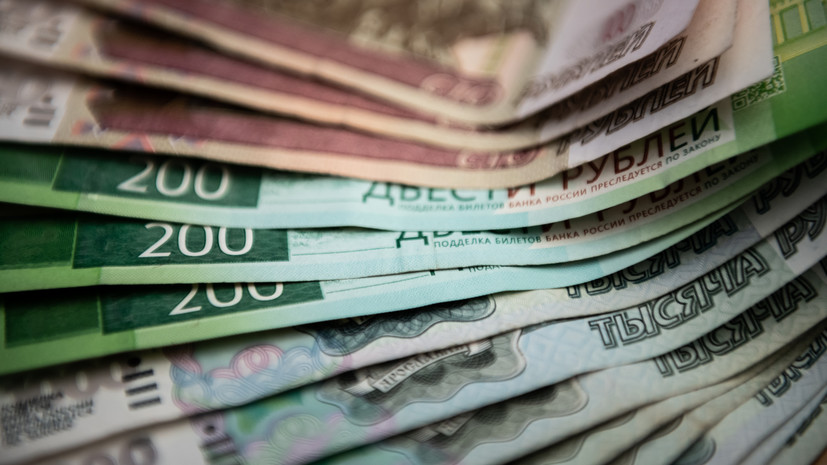In Russia, for the third time in a row, deflation is recorded in monthly terms.
This conclusion follows from the report of Rosstat published on Friday, September 9.
According to the agency, in August, consumer prices for goods and services on average in the country decreased by 0.52% compared to the previous month.
At the same time, in June and July, the indicator also fell - by 0.35 and 0.39%, respectively.
Thus, deflation in Russia persisted throughout the summer.
This happened for the first time in the entire post-Soviet period.
In annual terms, inflation in Russia in August slowed down from 15.09% in July to 14.3%.
Moreover, in the first days of September, the indicator continued to decline and has already dropped to 14.08%.
As calculated by the Central Bank, since July, prices have declined on average in most Russian regions.
In part, Central Bank experts attribute this to the still slow recovery in consumer activity of citizens.
In addition, seasonal factors and the stabilization of the situation in the foreign exchange market have a positive effect on inflation, the regulator added.
“The strengthening of the ruble, which occurred in the second quarter, continued to have a restraining effect on price growth.
Also, the decline in prices was due to an increase in the supply of food products due to an increase in the collection of grains and vegetables.
In the economy as a whole, price expectations of enterprises have fallen to their lowest levels over the past two years,” the Central Bank said in a report.
RIA News
© Evgeny Biyatov
Recall that in March, annual inflation in Russia accelerated to 16.69% from 9.15% in February, and in April it reached 17.83%, the highest level in the last 20 years.
The reason was the emotional reaction of the financial market and ordinary citizens to Western sanctions against Russia.
As a result of large-scale economic, financial and trade restrictions against Moscow, the ruble fell in record value against the dollar and the euro in early spring, and Russians began to massively buy food and goods.
All this together provoked a rush price increase, said Anatoly Popov, deputy chairman of the board of Sberbank, in a conversation with RT.
“Indeed, we observed a jump in inflation in March-April.
This was due to both increased consumer demand and a certain deficit that temporarily formed on the market.
Later, when consumers overstocked, we saw a cooling in consumption.
In addition, the price increase in itself in the spring also weakened demand,” Popov explained.
Against this background, already in May, inflation in Russia fell to 17.1% in annual terms and continued to decline systematically in the following months.
According to Anatoly Popov, according to the results of the entire 2022, the indicator will most likely not exceed 12%.
A similar forecast was made earlier by President Vladimir Putin.
“Inflation is down.
It will be somewhere under 12% for the year, and the trend is to decrease up to 5-6%, and maybe to the target of 4% at the end of the I-II quarter (2023. -
RT
), I hope we are we will see,” Putin said during a speech at the Eastern Economic Forum.
RIA News
© Alexey Danichev
At the moment, prices are falling in all sectors of consumer retail, and some areas have already returned to the corridor of normal price values.
This was told to RT by the first vice-president of the all-Russian public organization of small and medium-sized businesses "Support of Russia" Pavel Sigal.
“In general, everything that is happening now in price dynamics can be characterized as a gradual return to natural positions, which is quite understandable from the point of view of market competition.
Of course, some industries are traditionally less mobile and therefore react more slowly to general trends, but even there the price decline is noticeable, even if the rate of return to winter price tags is not so high,” Segal added.
Signal for the Central Bank
Recall that at the end of February, as one of the anti-crisis measures, the Central Bank more than doubled the key rate - from 9.5% to a record 20% per annum.
The actions of the regulator largely helped to avoid an even greater acceleration of inflation and stabilize the overall situation in the country's financial market, experts admit.
However, as the situation in the economy returned to normal, starting from April, the Central Bank began to systematically reduce the key rate, and in July lowered it below the pre-crisis level, to 8% per annum.
At the same time, specialists do not exclude that in the coming months the regulator will continue to ease monetary policy.
The regulator's actions are designed to revive business activity and consumer demand by lowering interest rates on loans for households and businesses.
Evgeny Zhornist, portfolio manager of Alfa Capital Management Company, spoke about this in an interview with RT.
“The observed decrease in inflation, of course, unties the hands of the Central Bank in terms of further easing of monetary policy.
Of course, as the key rate and yields decrease, lending will recover in the market.
This, in turn, should create a compensating effect, that is, increase demand and resist deflationary trends,” the expert explained.
Nevertheless, deflation in Russia will still persist for some time, the analyst believes.
Against this background, according to him, the Central Bank may lower the key rate to 7% per annum.
A similar point of view is shared by the portfolio manager of the management company "Opening" Ruslan Mustaev.
“If the trend towards a decrease in inflation and a decrease in the depth of the recession in the economy continues, we can talk about a further reduction in the rate.
We would say that by the end of the year it could be in the range of 7-7.75%, ”concluded the interlocutor of RT.

